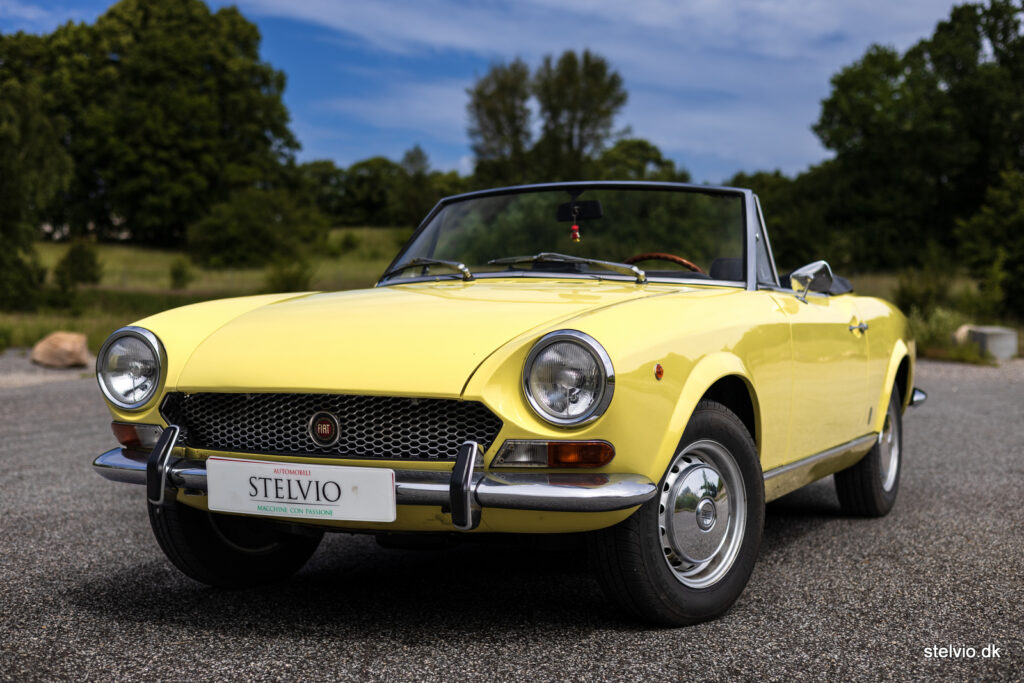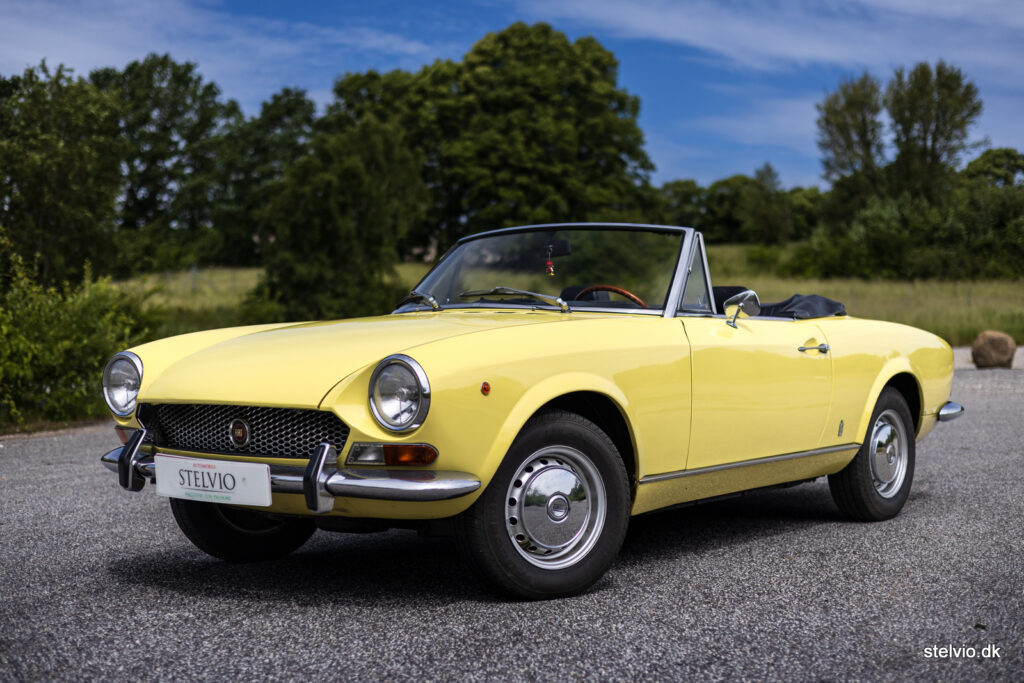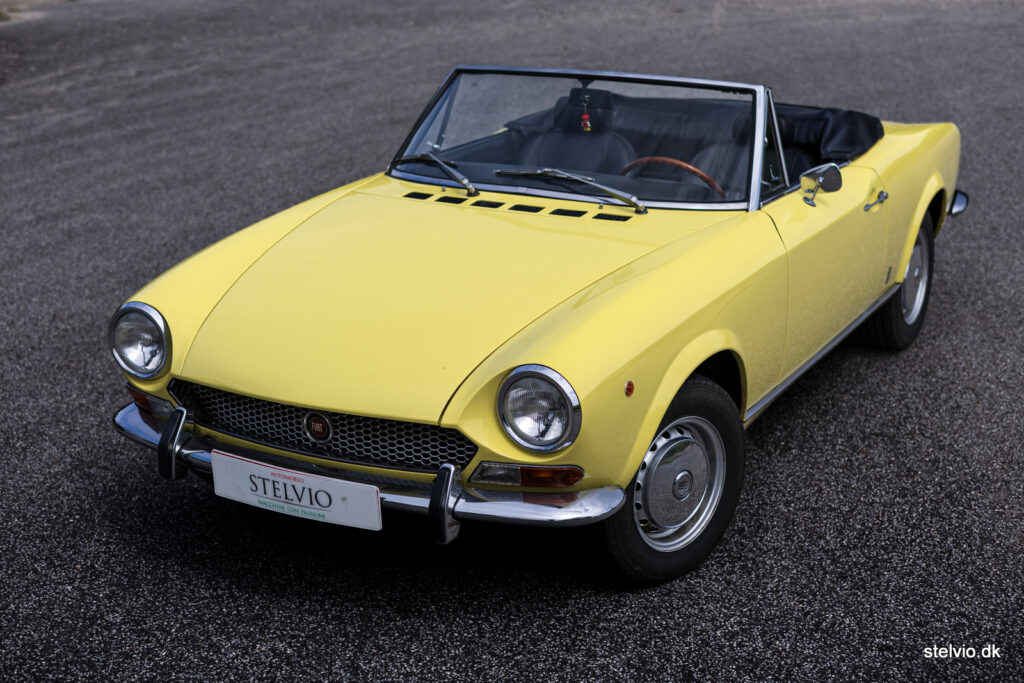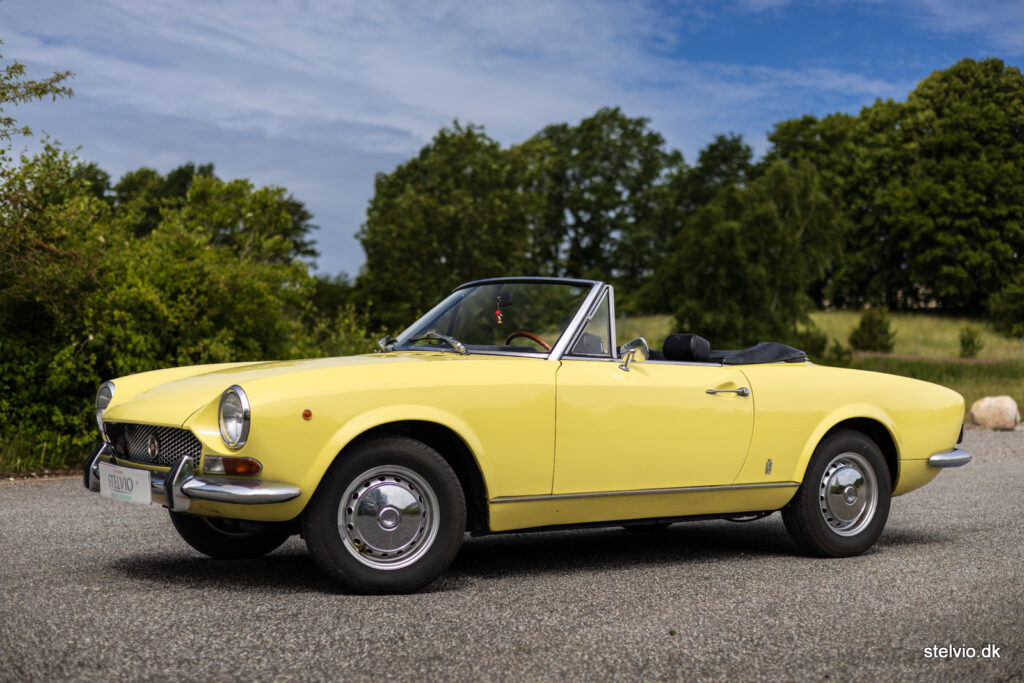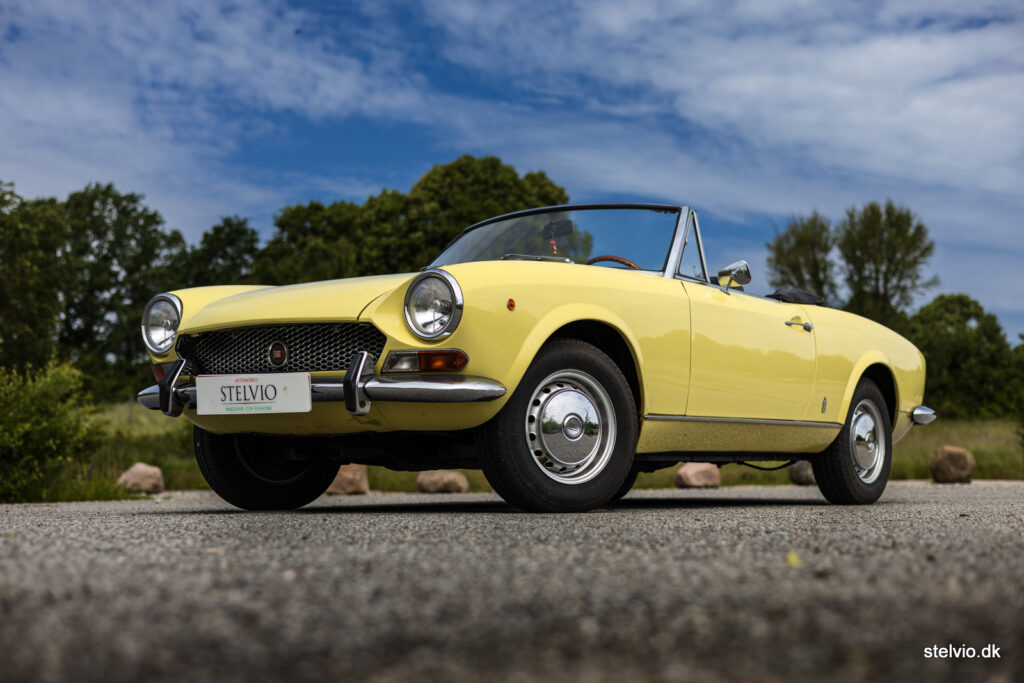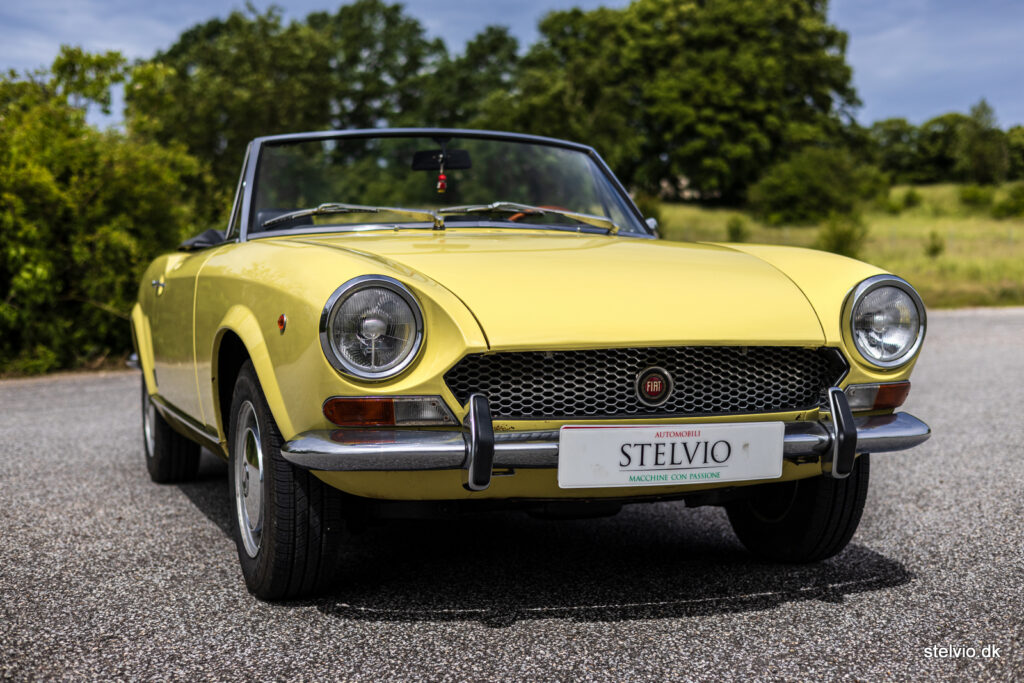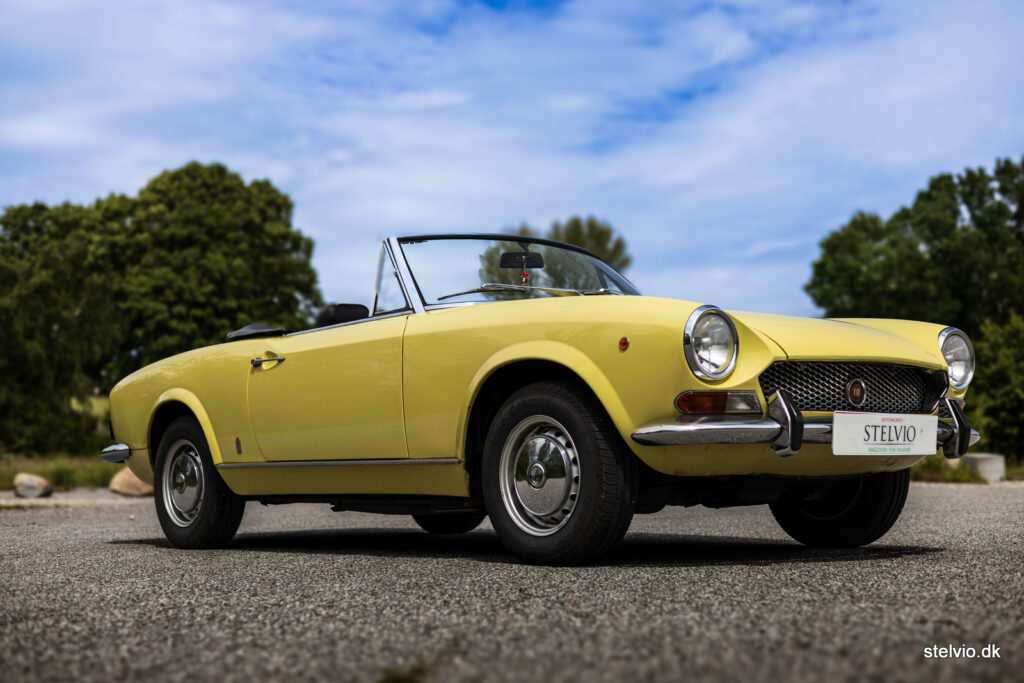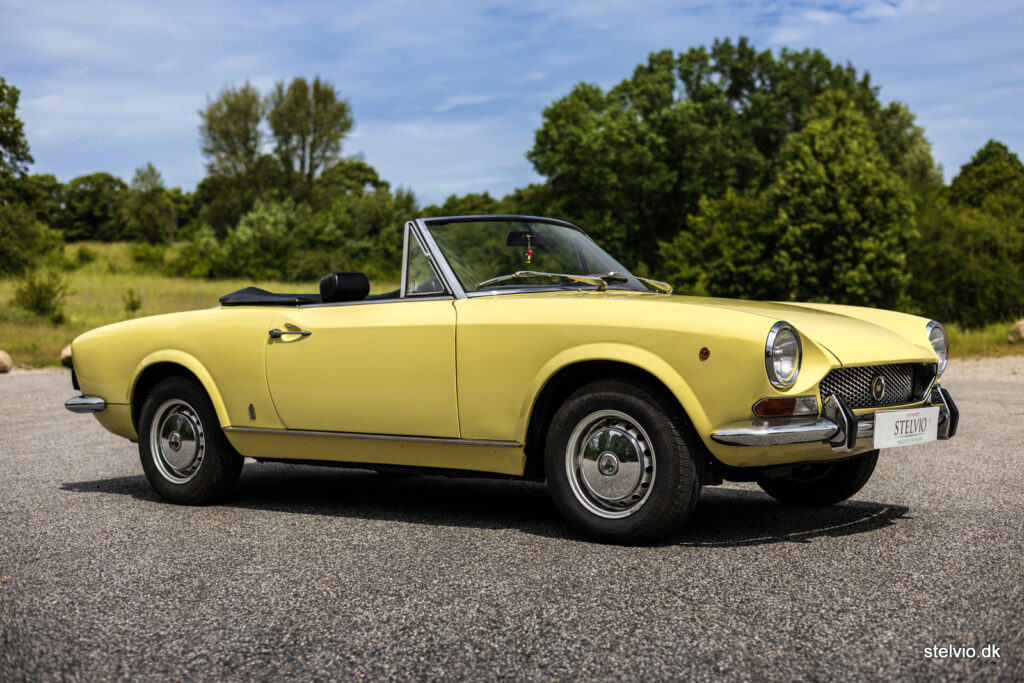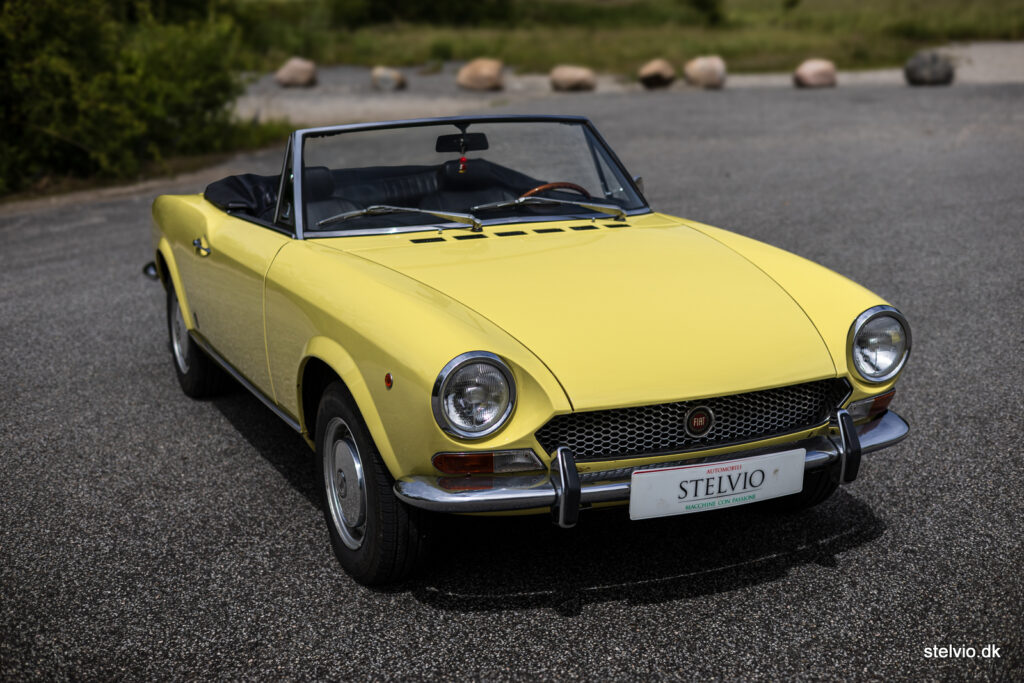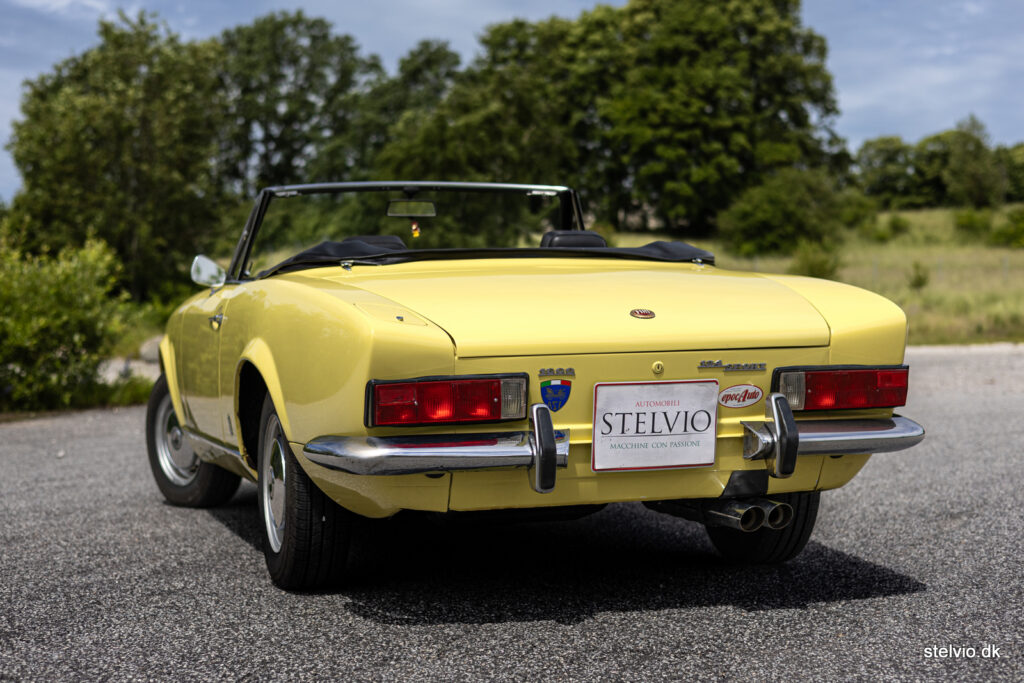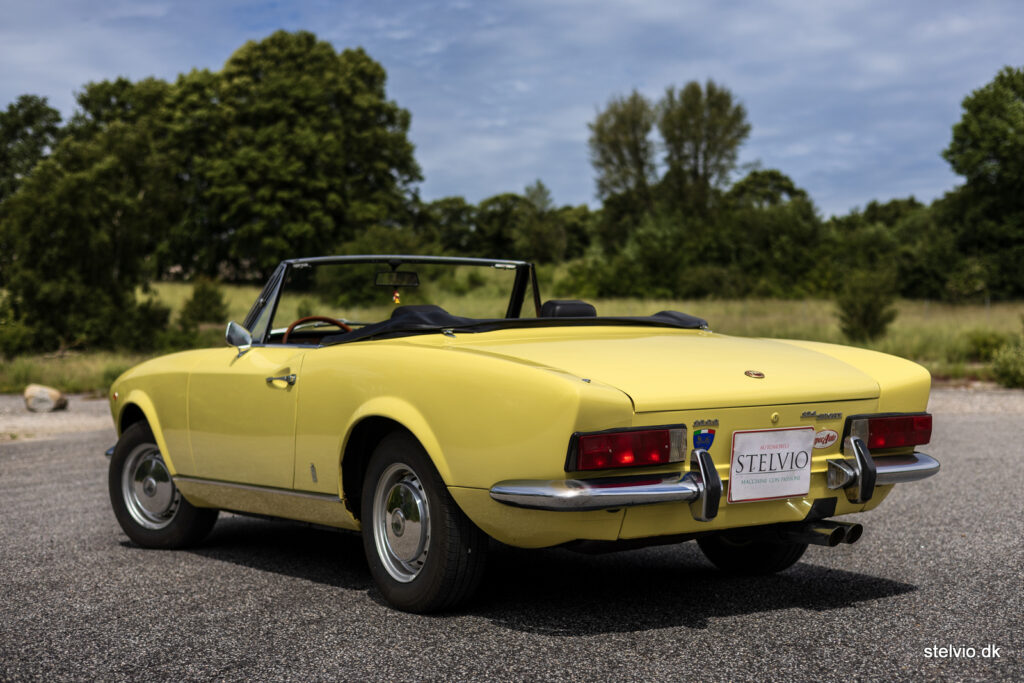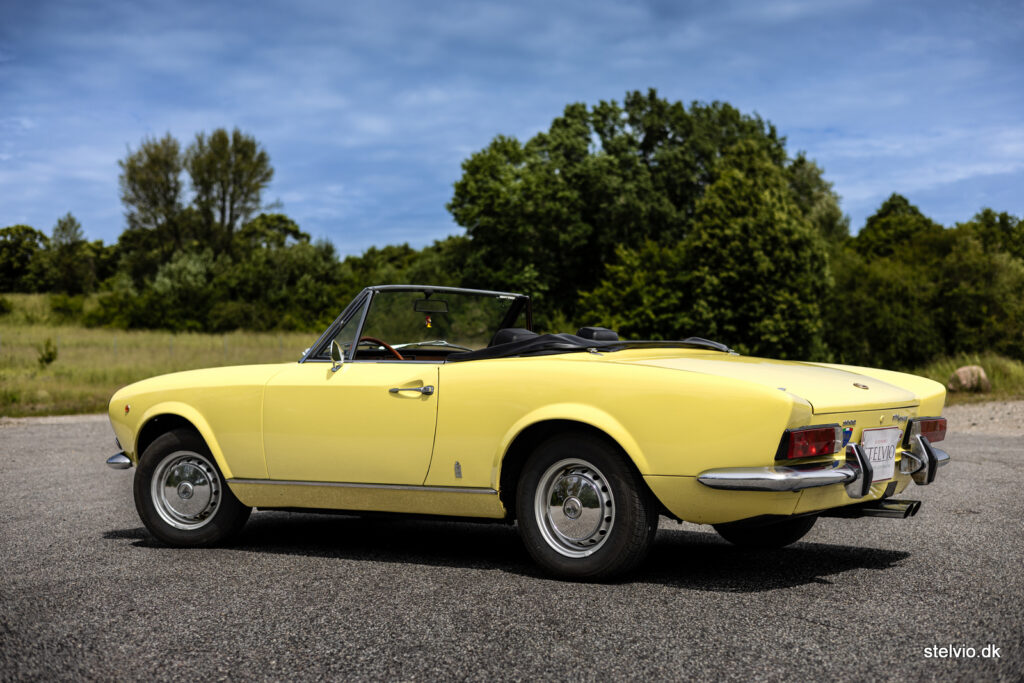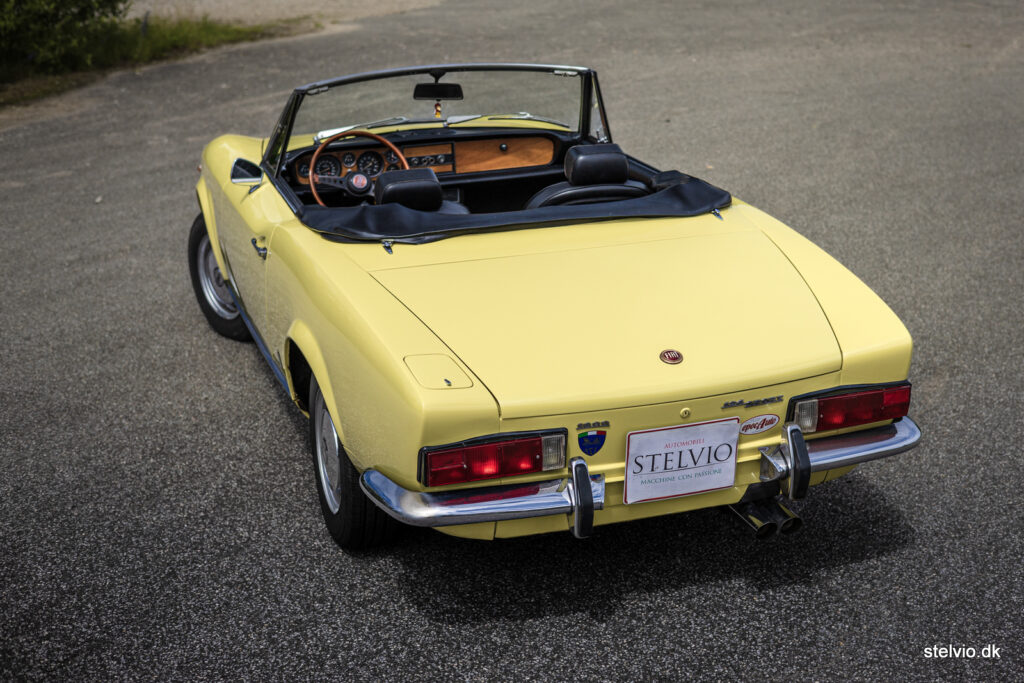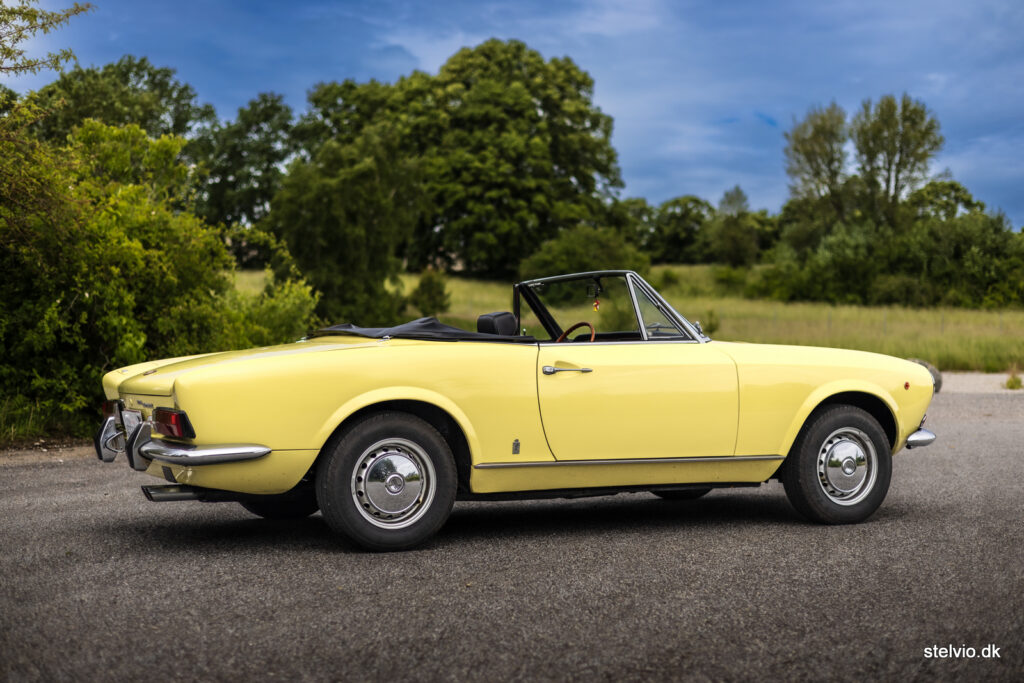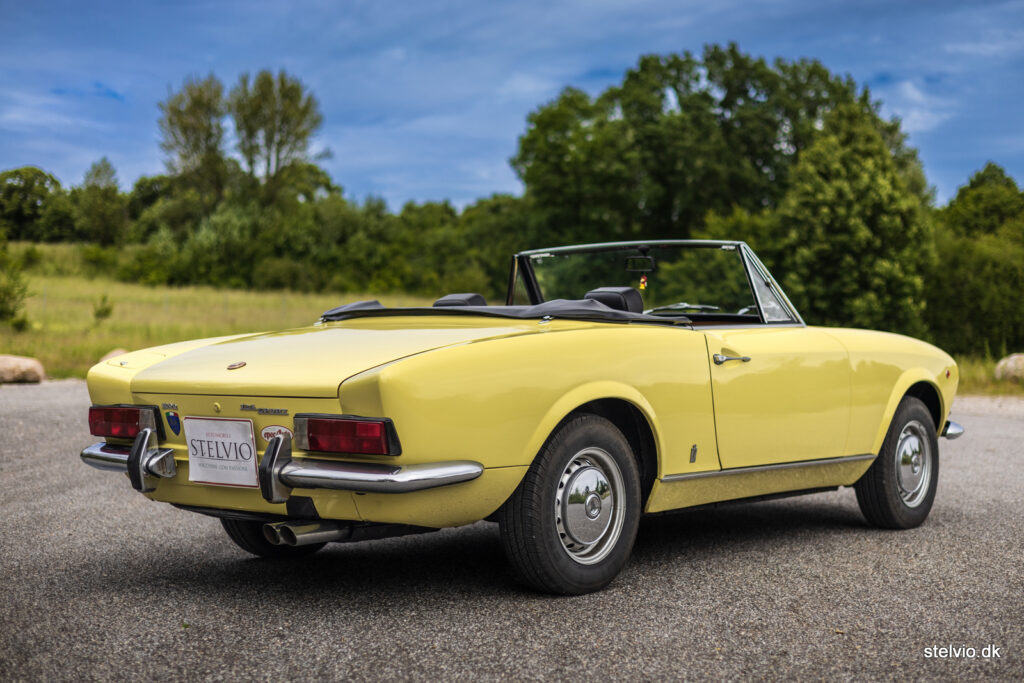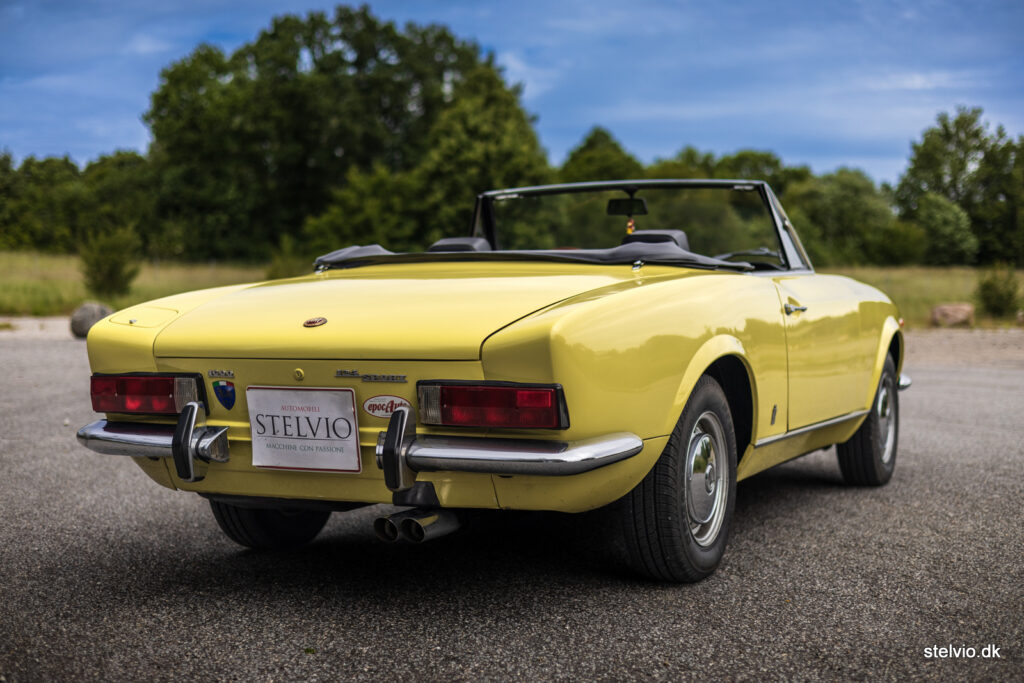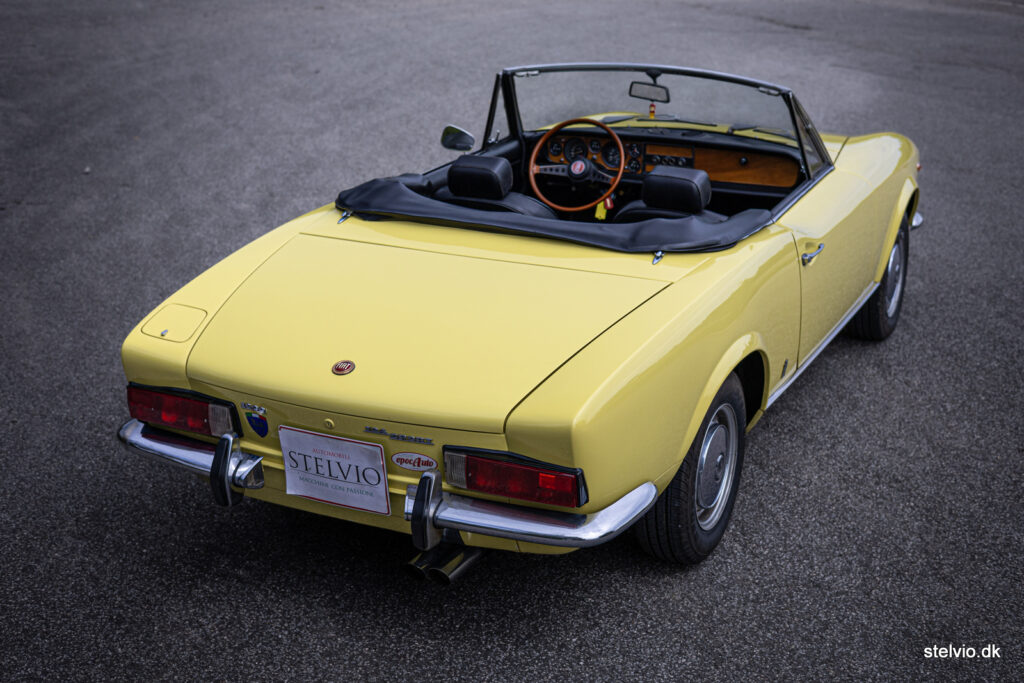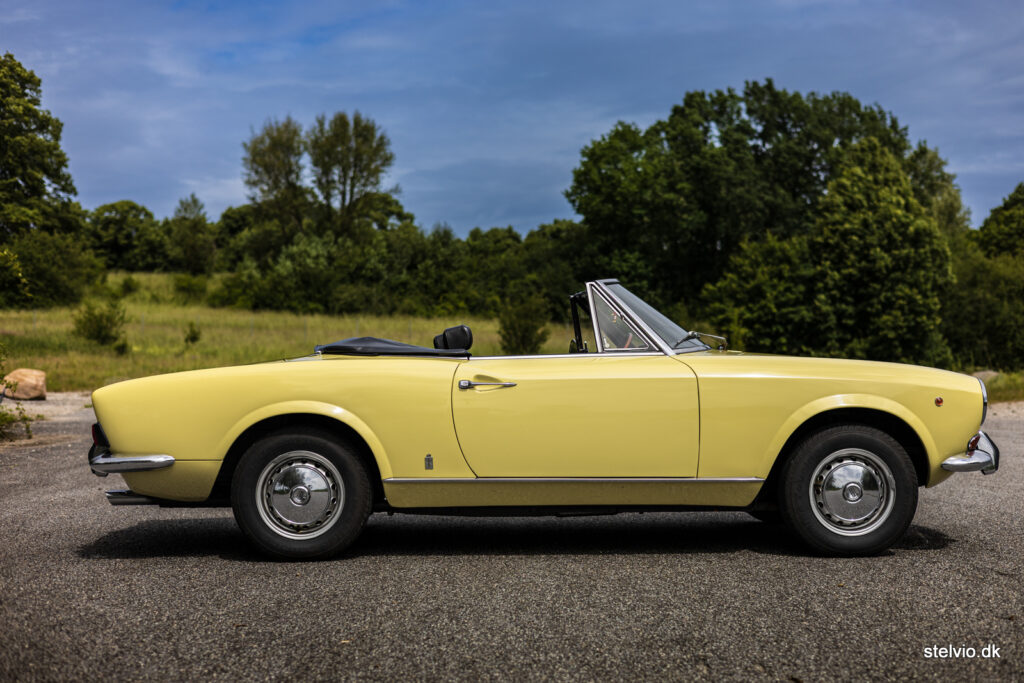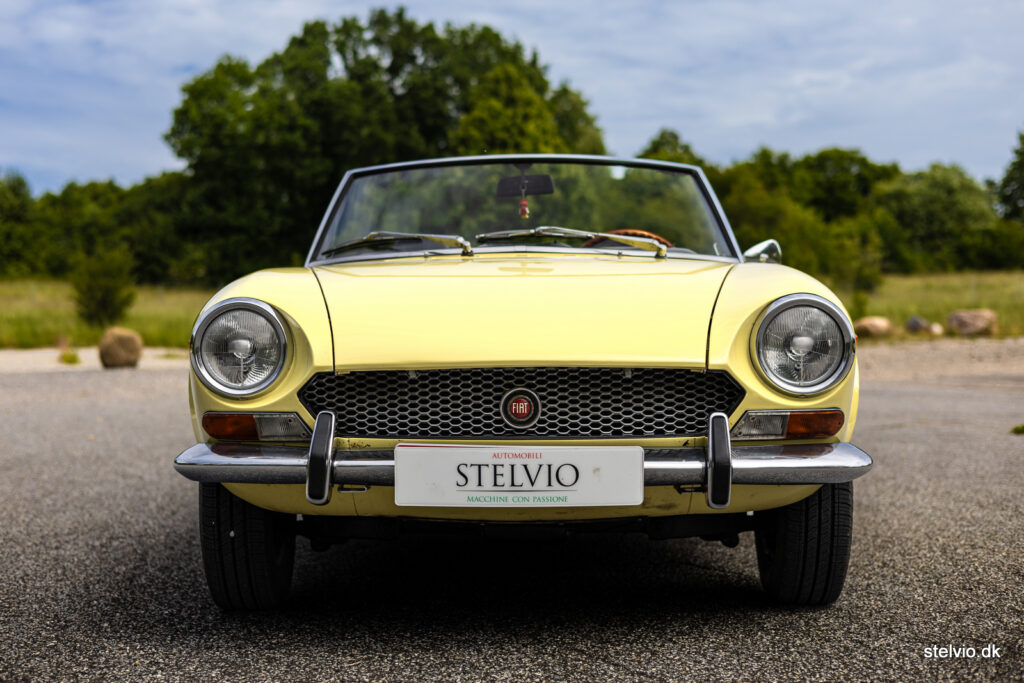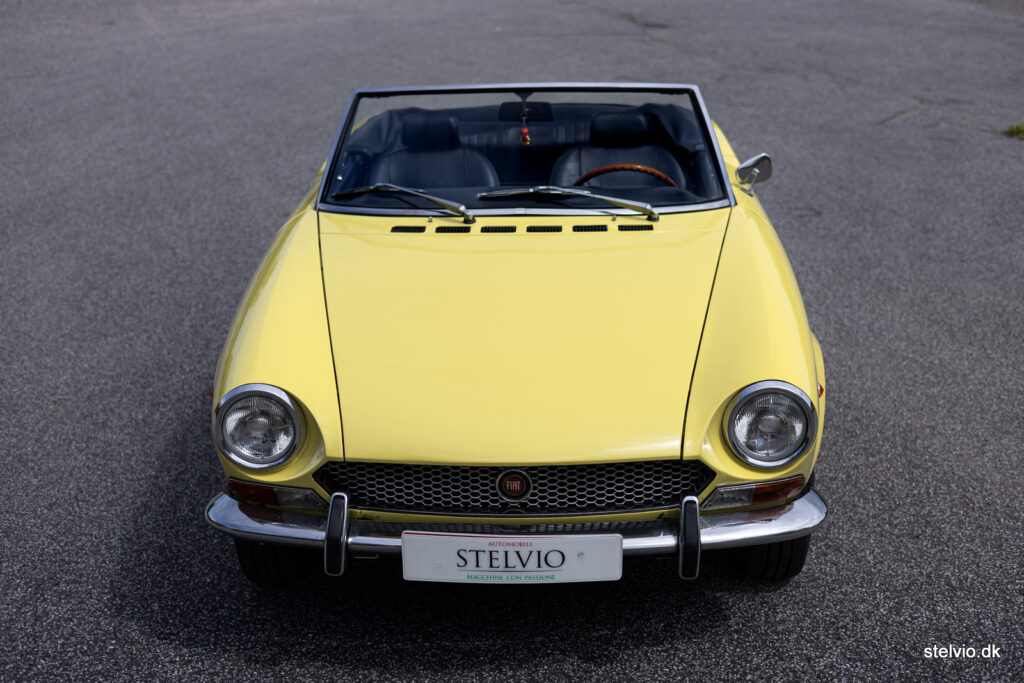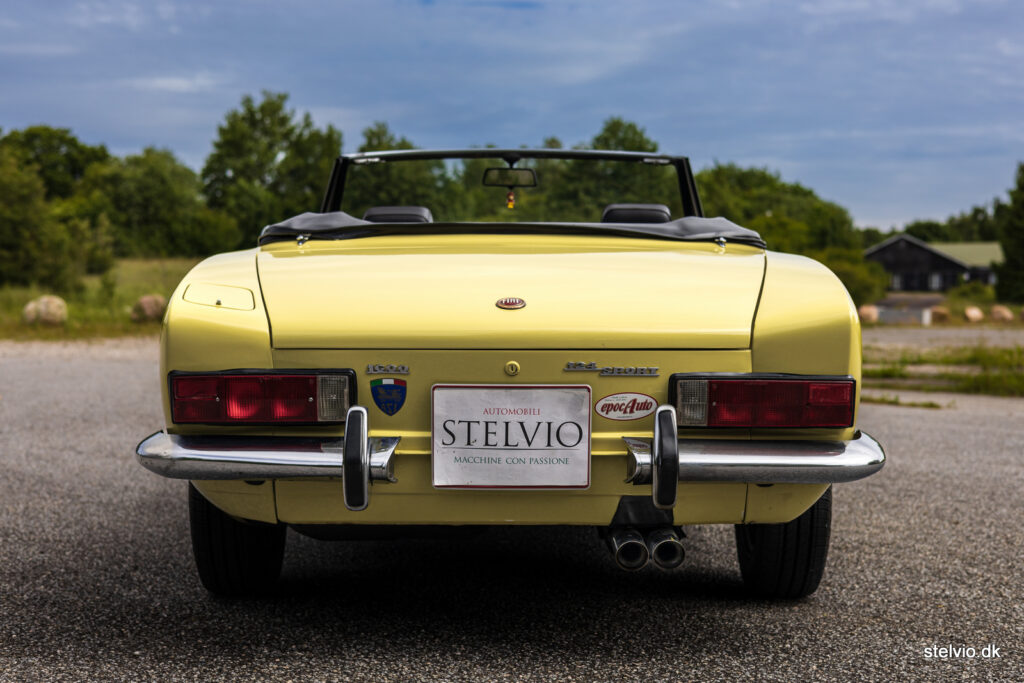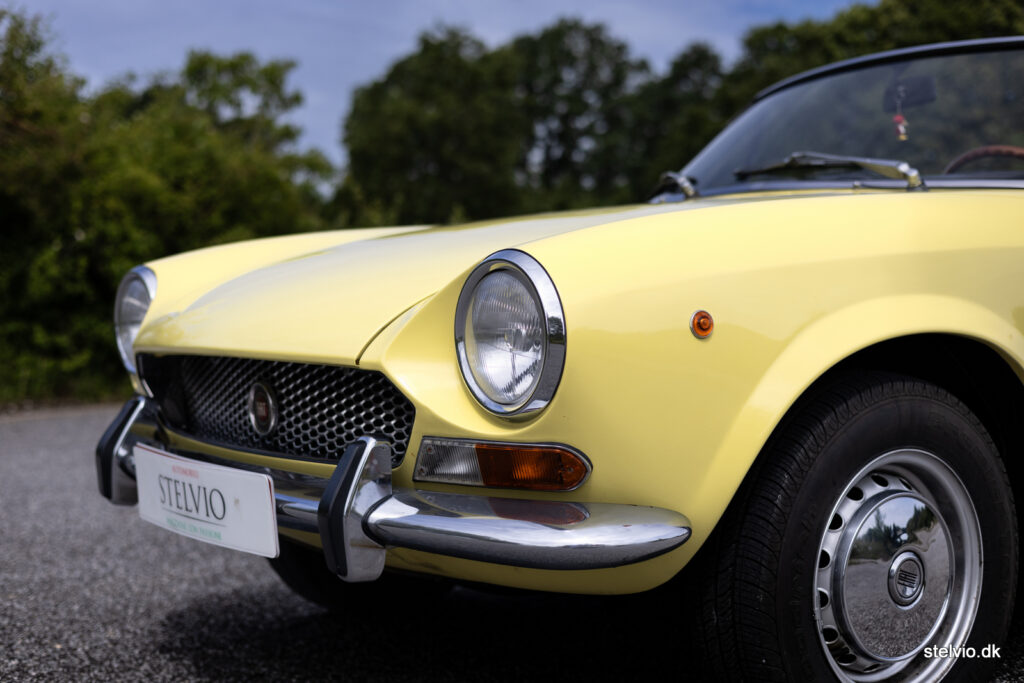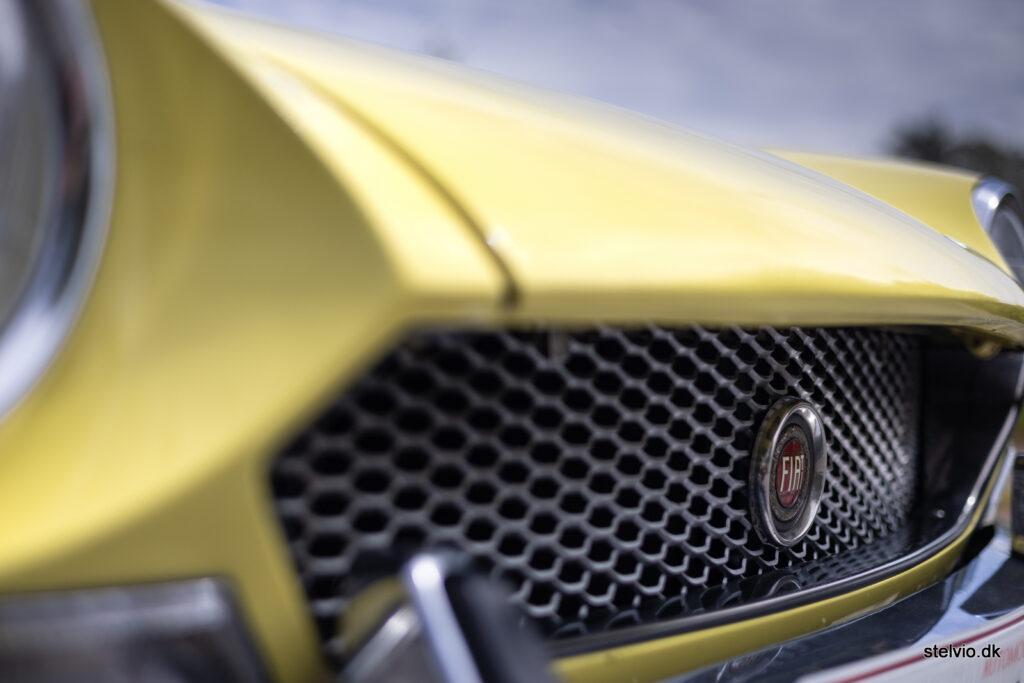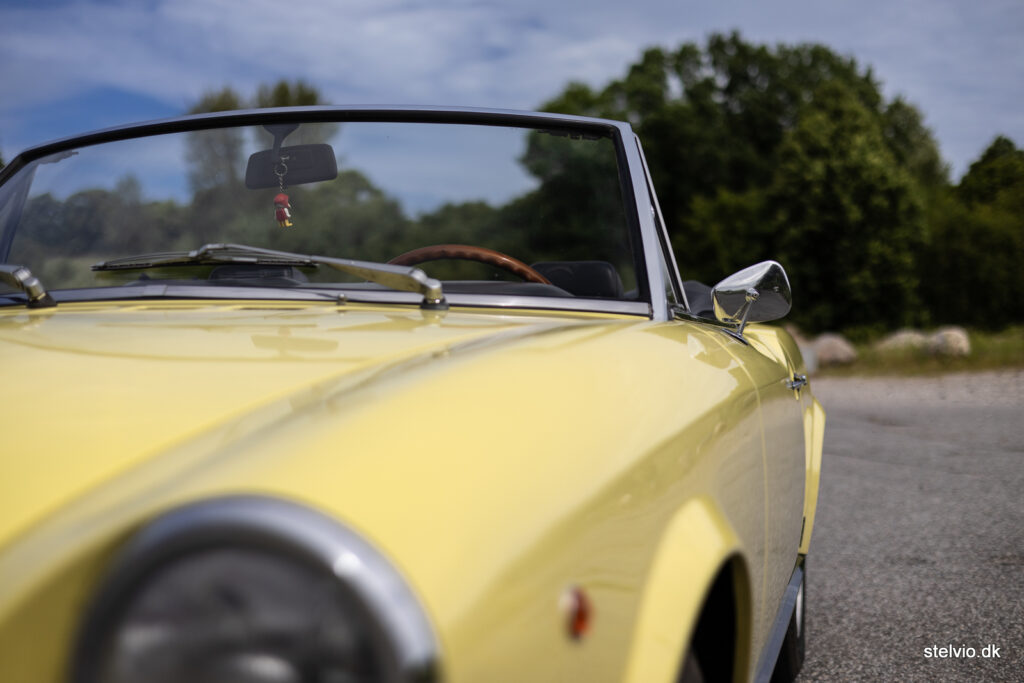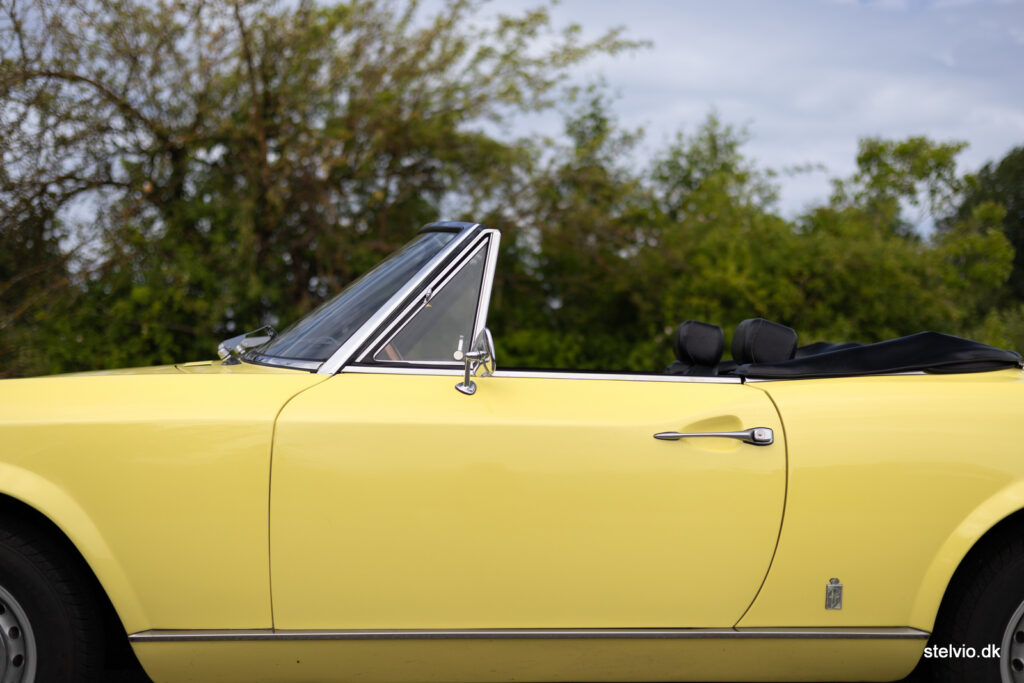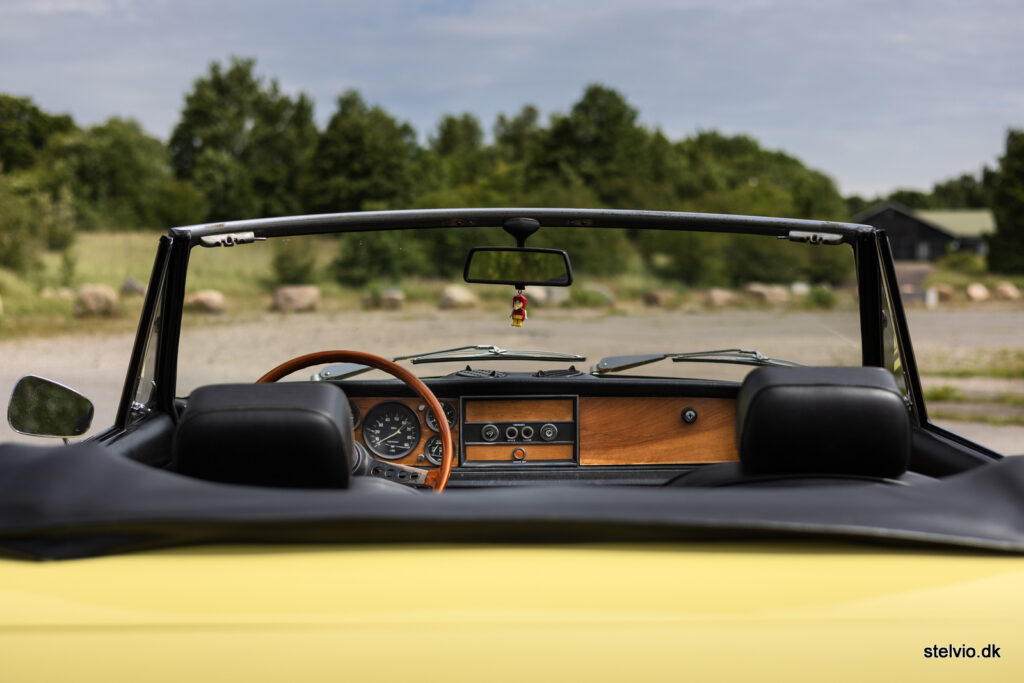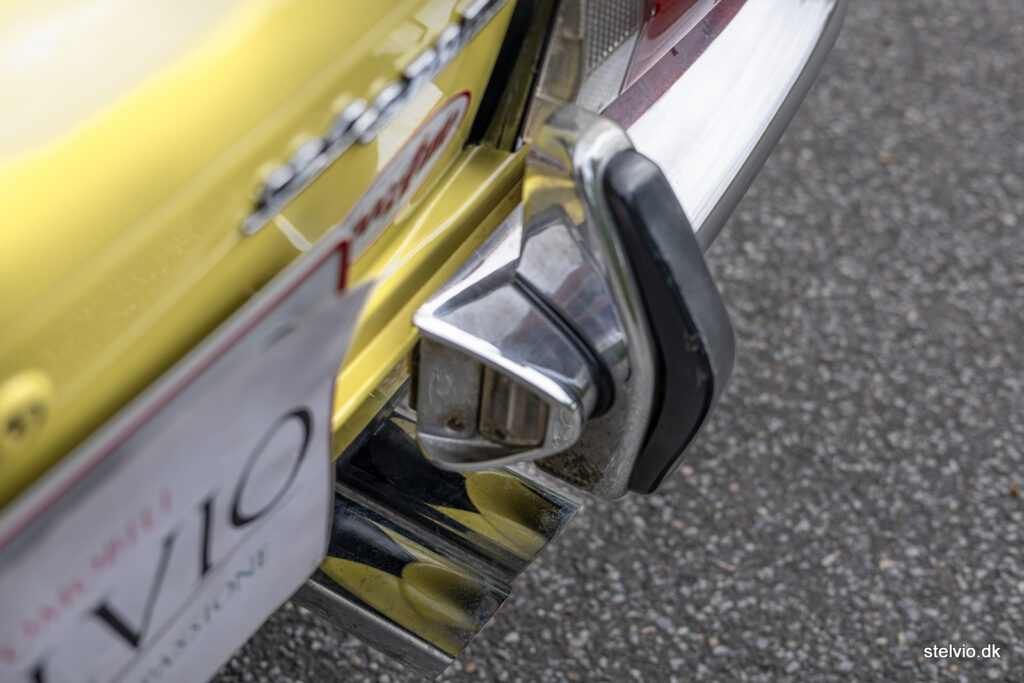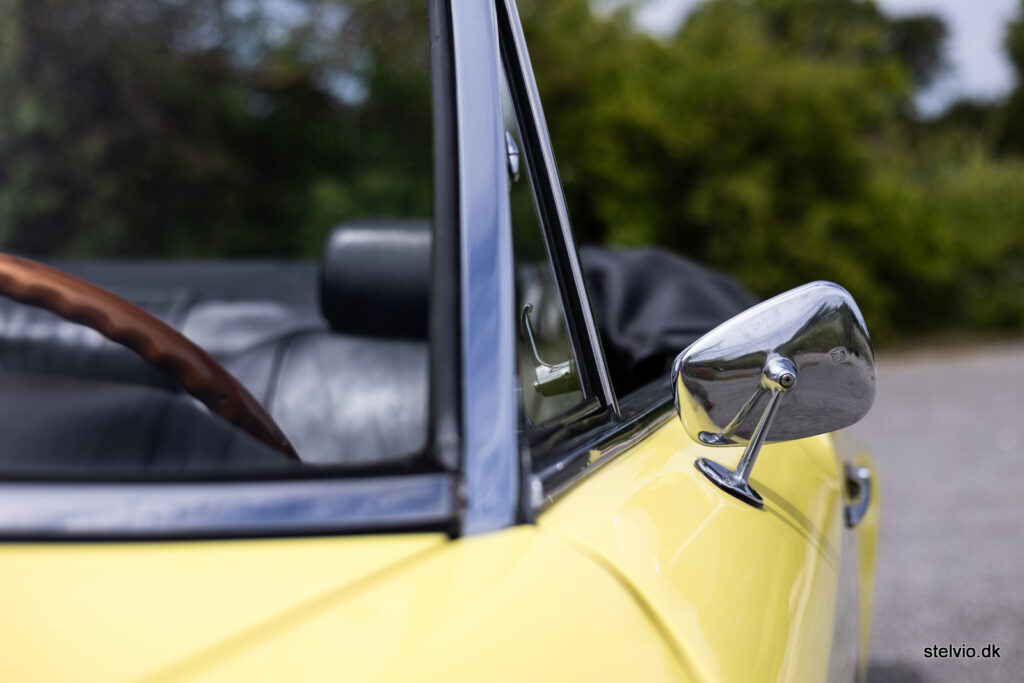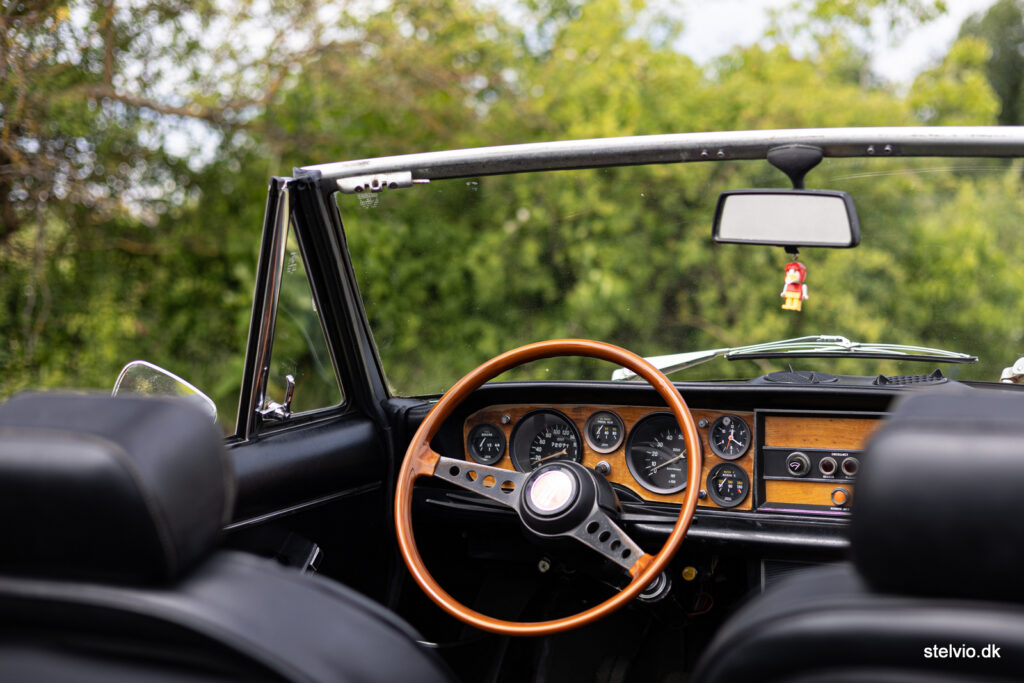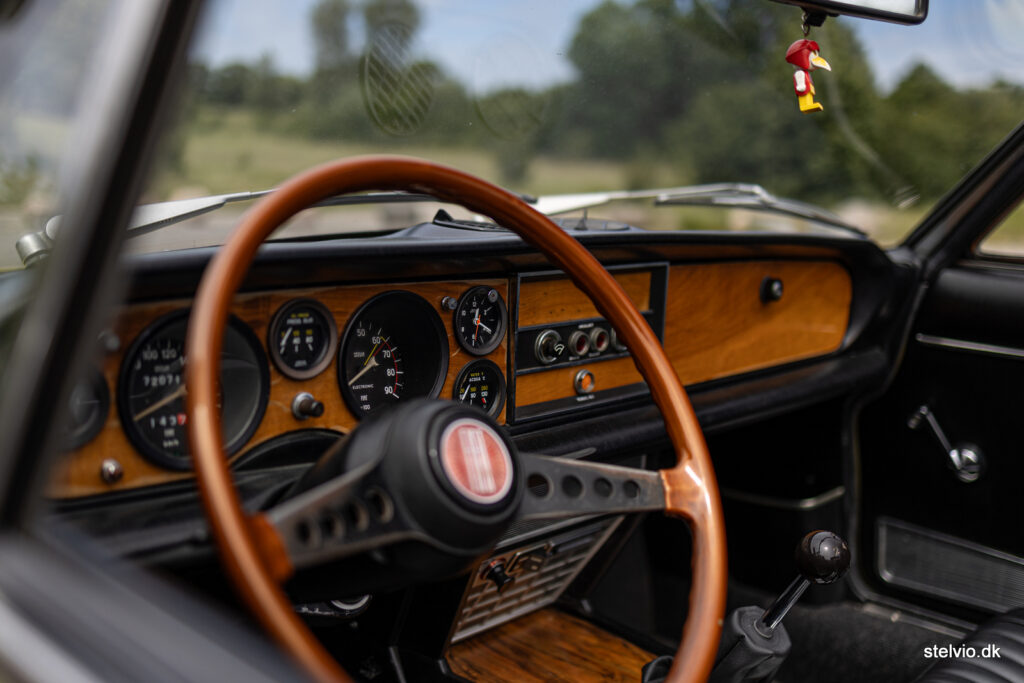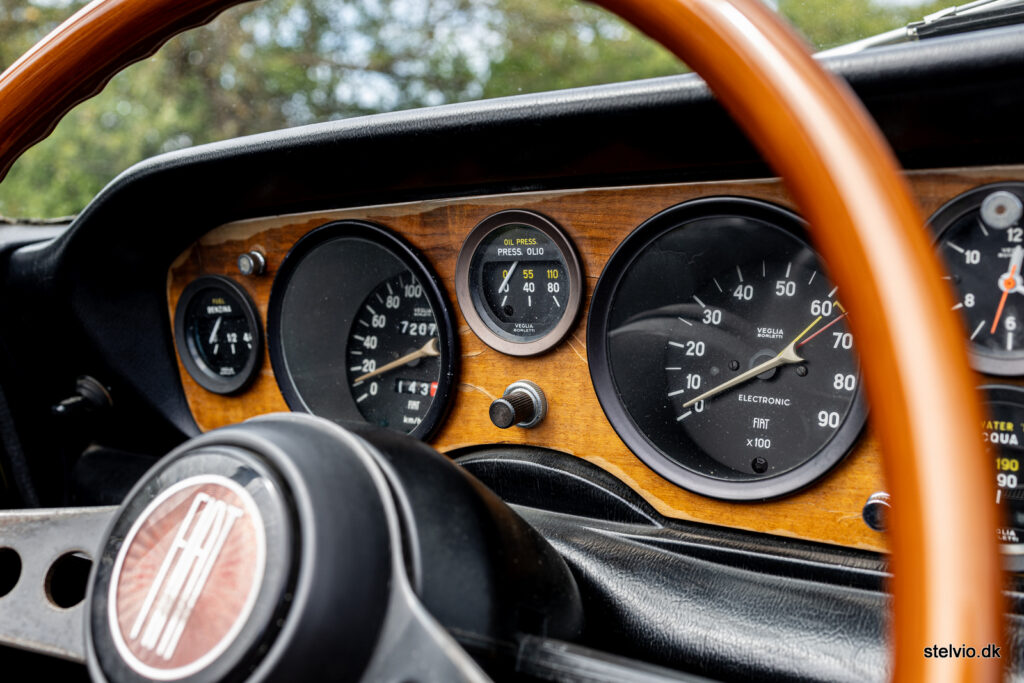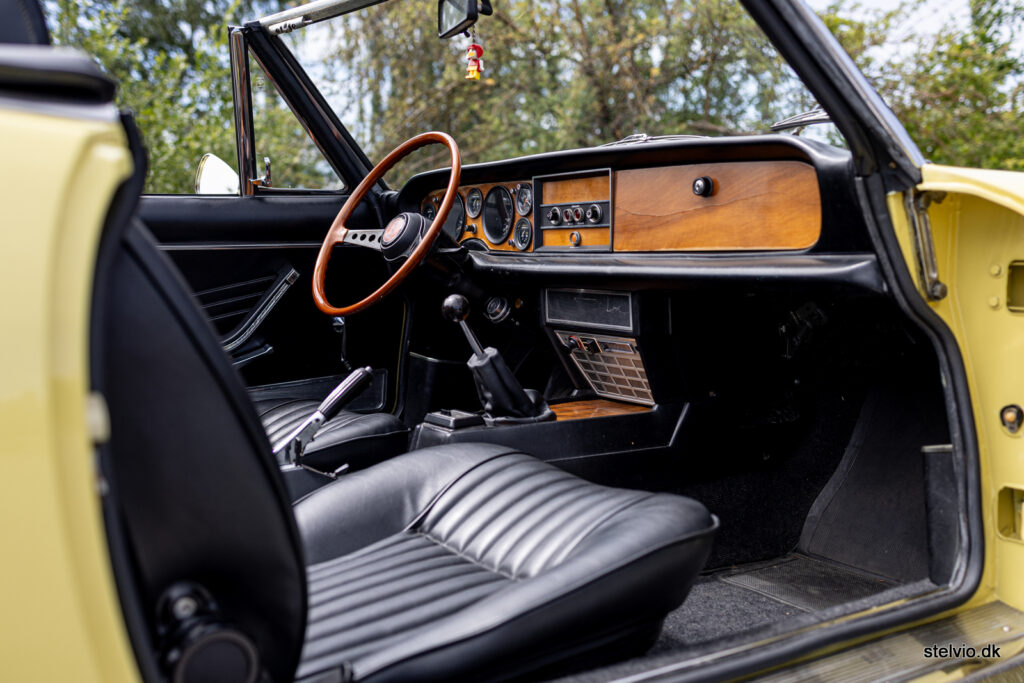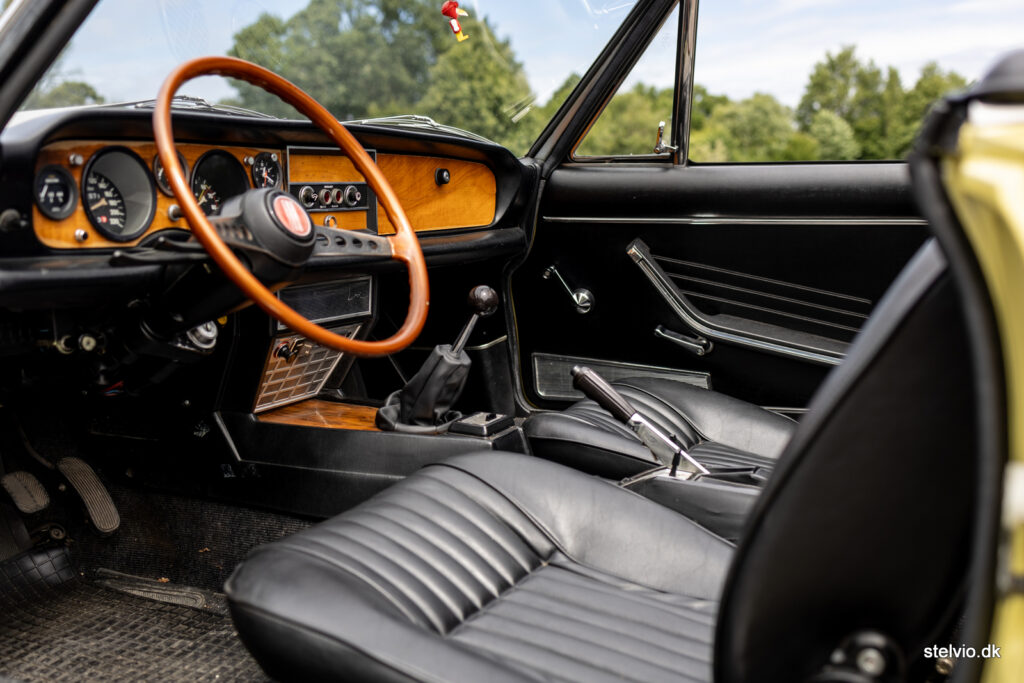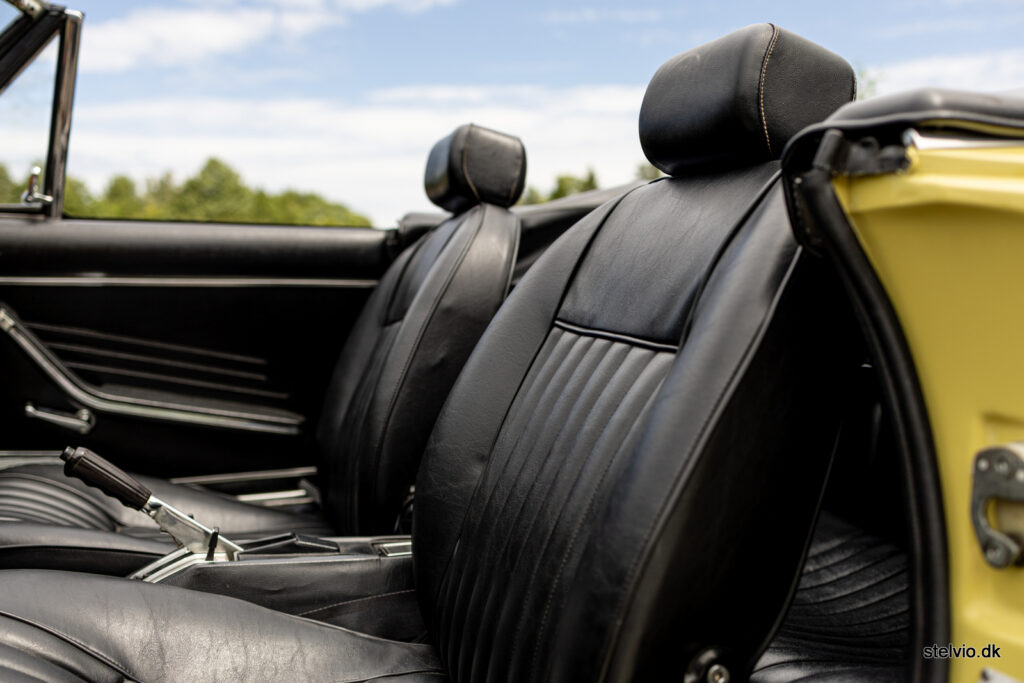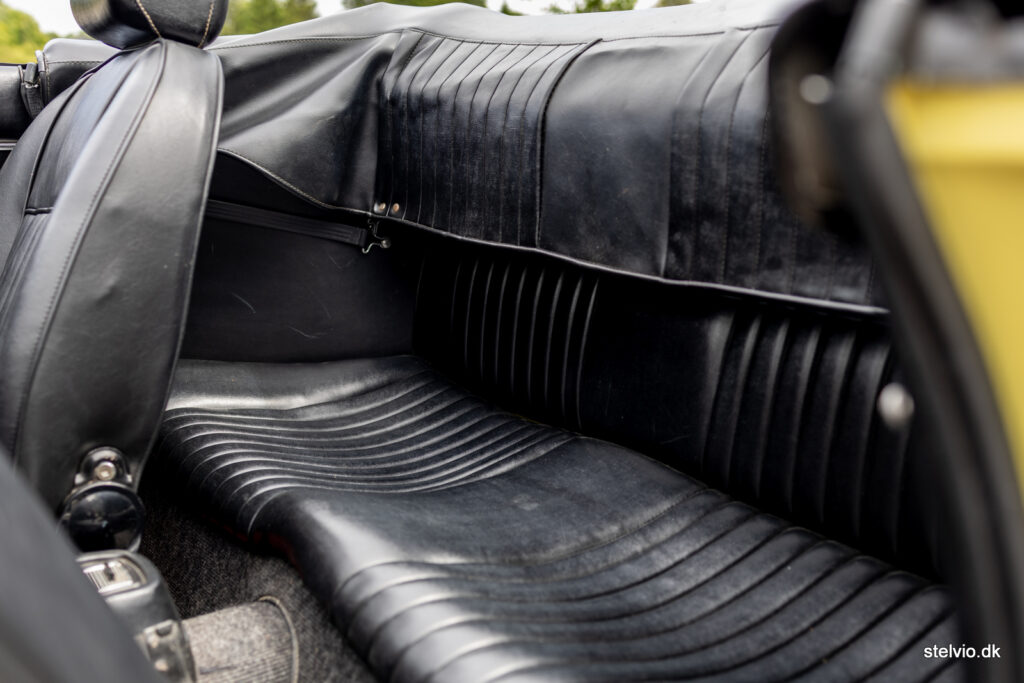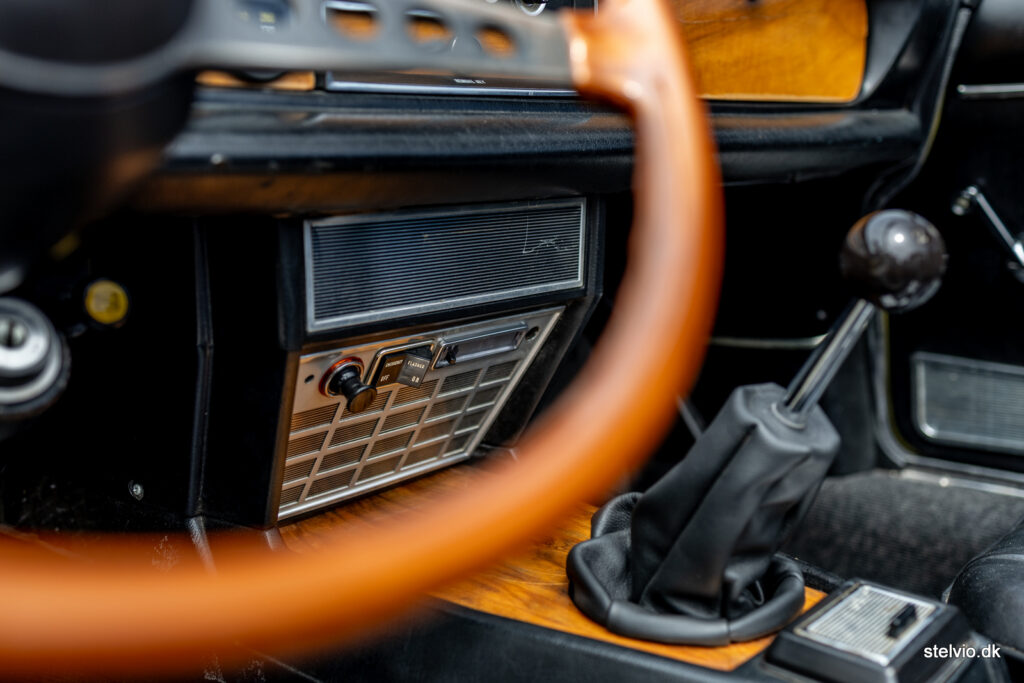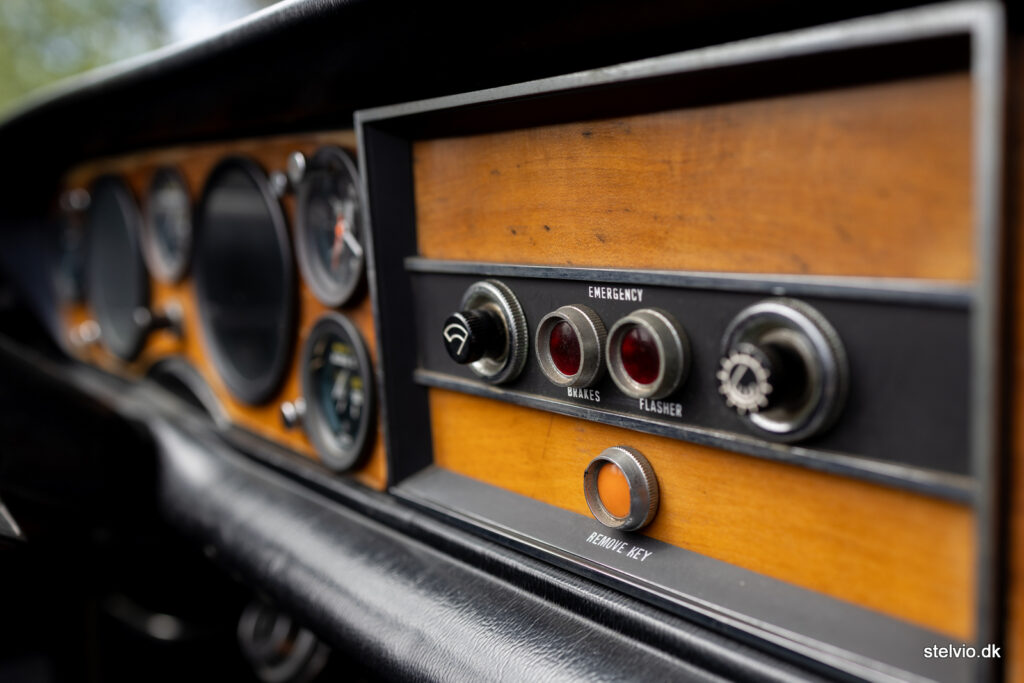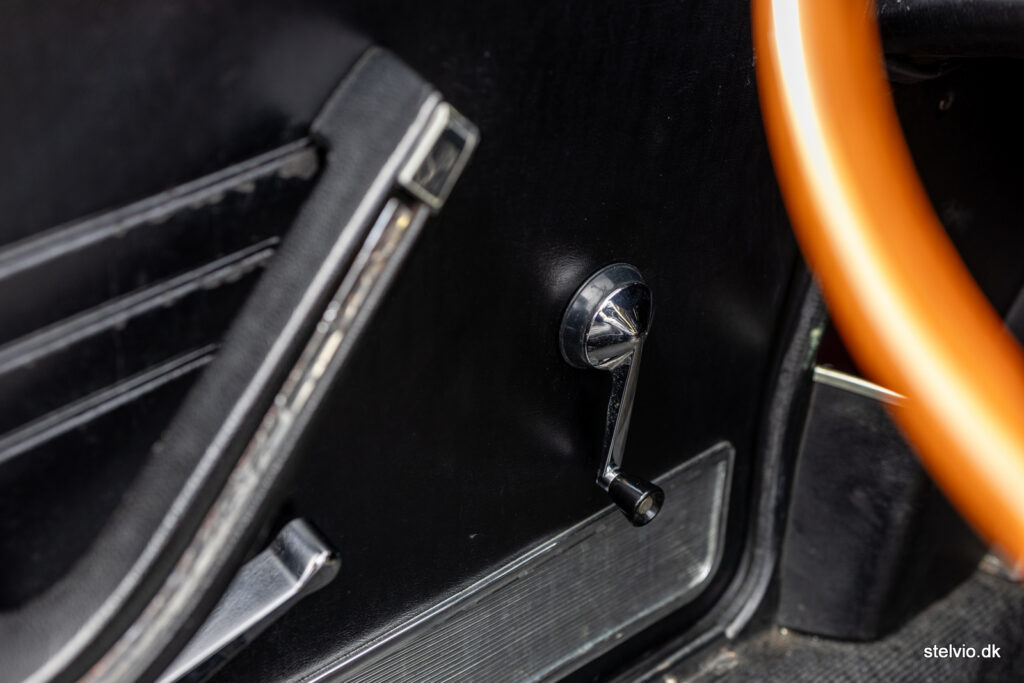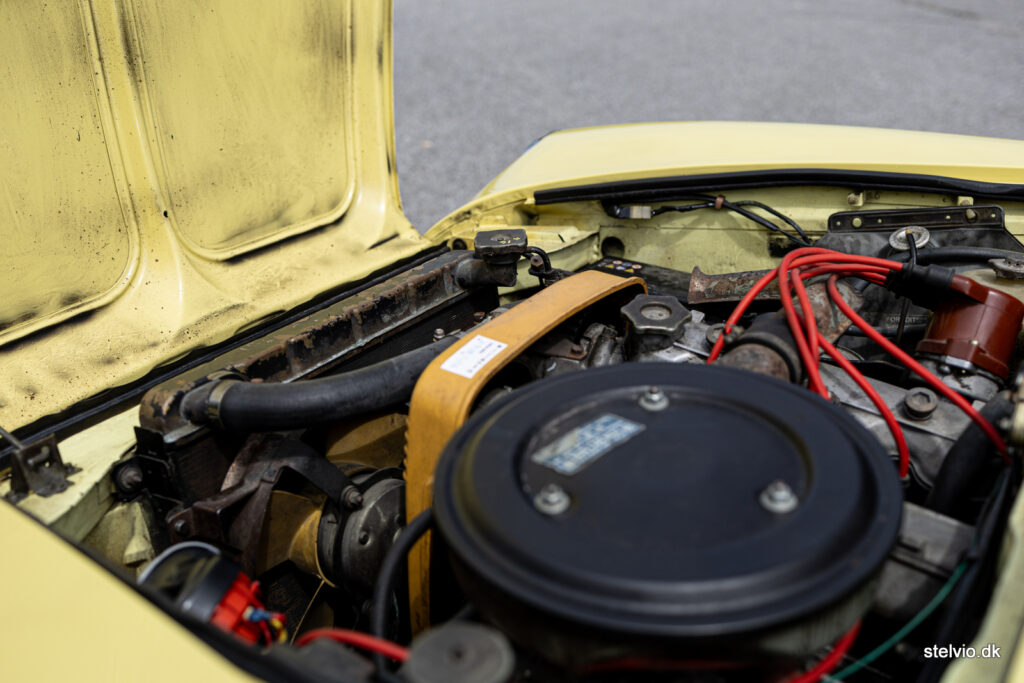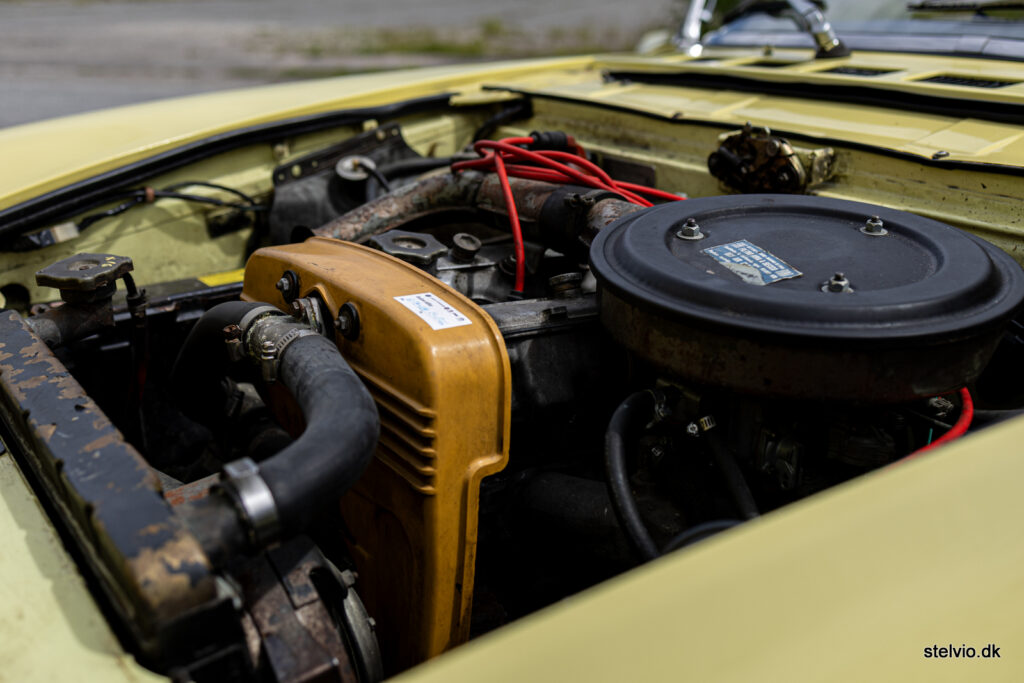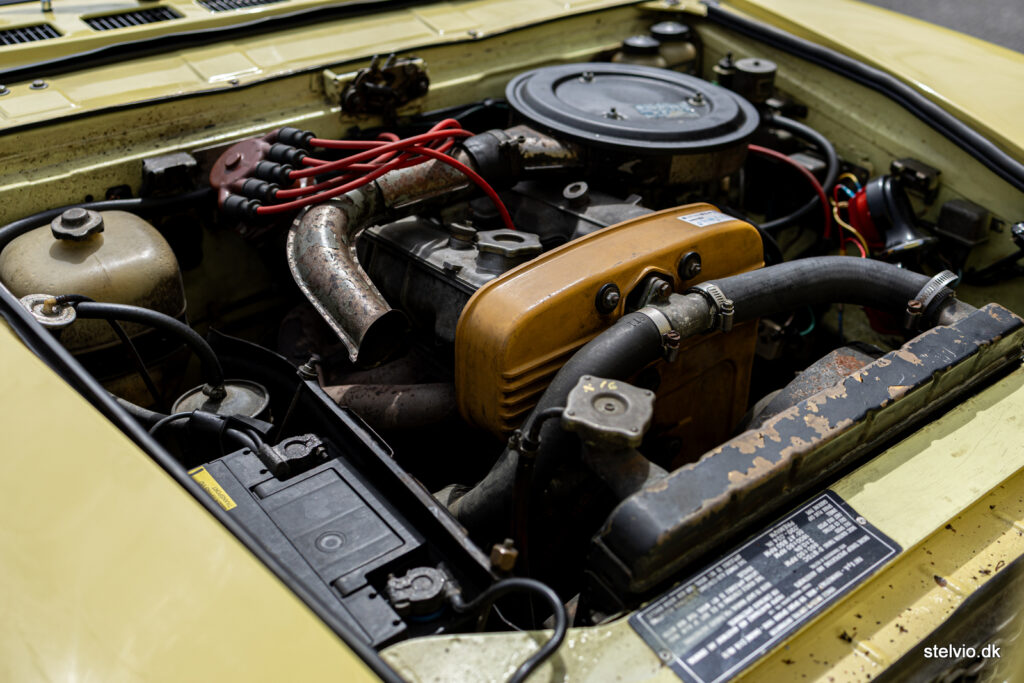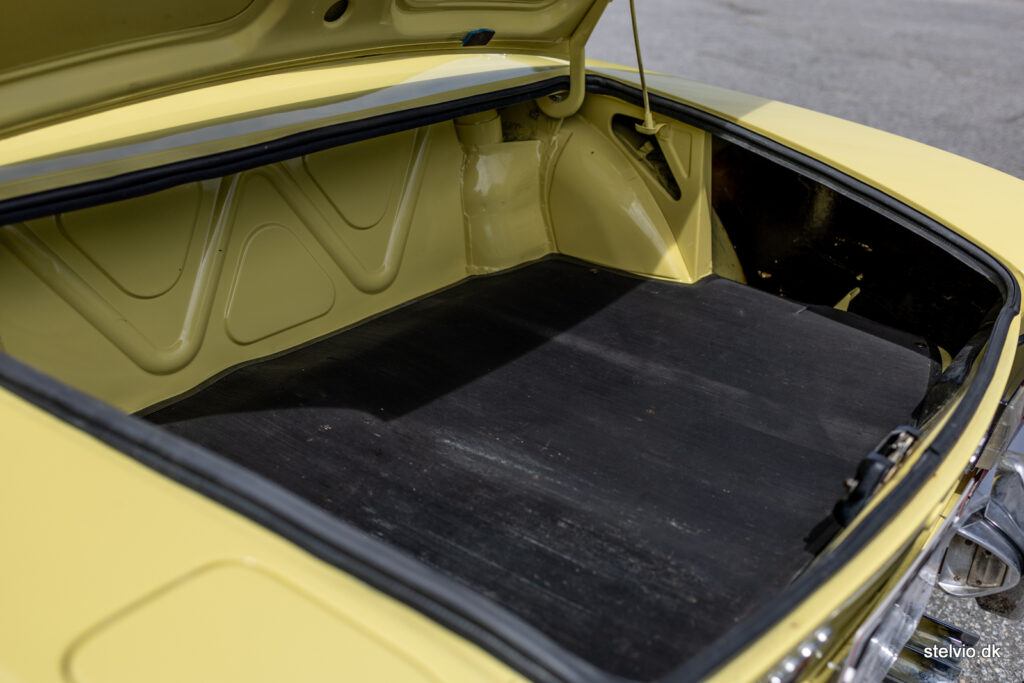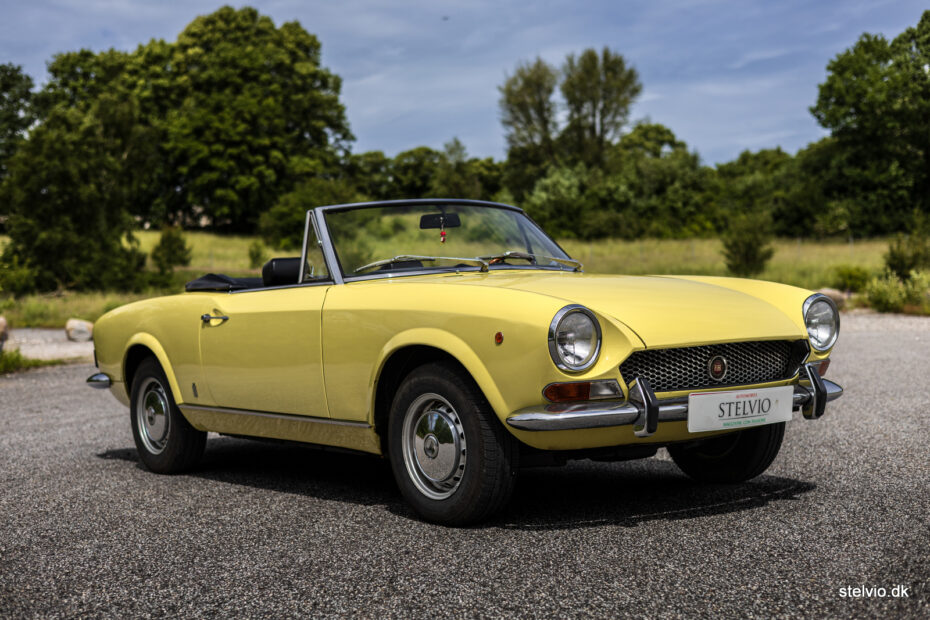This car has been sold thank you
Remember to watch the nice video presentation below
When your dream of a 1960s Italian sports car, open and with a design from one of the most distinguished design houses, normally it requires a nice well-padded bank account if the dream is to be realized. The Fiat 124 Spider ticks all the boxes at a somewhat more down-to-earth price than its Dino siblings, not to mention the vastly expensive Convertibles from Maranello and Modena.
In addition to the elegant exterior from Tom Tjaarda at Pininfarina, the beautiful little Fiat offers technical delights such as disc brakes on all 4 wheels, 5-speed gearbox, a very revving engine with 2 overhead camshafts driven by cambelt (!) and an aluminum cylinder head. As an “entry-level” sports car, its closest competitor at the time was the MGB, and here the Fiat was technically somewhat more advanced. When classic car magazines today have to find a competitor to pit the Fiat against, they therefore often choose the slightly more expensive Alfa Romeo Spider instead of the MG, otherwise the 124 pretty much runs away with everything.
The 124 Spider is probably Fiat’s biggest sports car success to date. It was Italy’s great design house Pininfarina that was given the task of both designing and producing the car. Tom Tjaarda was responsible for the beautiful, striking lines (some you will find in the De Tomaso Pantera as well), and the new Fiat was presented at the international motor show in Torino in 1966. The Fiat 124 Spider thus came on the market in the same year as the Alfa Romeo “Duetto” Spider, and both cars were significantly more modern in both design and engineering, than their competitors of the time.
The engine was a star designed by ex-Ferrari engineer Aurelio Lampredi. The 4-cylinder inline engine with 2 overhead camshafts was pulled by a timing belt, which was exceptionally modern at the time. Displacement increased steadily over the years from 1400cc to 1600, then 1800 ending at 2000cc. It was a well-constructed engine with quite considerable tuning potential, and when Abarth started modifying it in 1971, they developed the car into a true Rally weapon. The Fiat 124 Abarth Rallye achieved many victories in rallies in the following years and the same engine was then extensively used in some extremely potent Lancia rally cars, both with and without pressure charging from compressors and turbochargers respectively (and both at the same time!). In fact, the engine is the most winning engine construction in Rally history, which testifies to its huge potential.
This car here is originally from Canada, which explains the bonnet without power bowls despite being a BS1 version with the 1600 engine. Body is in an extremely nice condition, and appears to have never been welded. Repainting took place a few years ago in the original summerly and happy color, which together with the black interior gives a nice fresh look. The car drives really well and the engine and gearbox are a pleasure to use. There is no further work to do on the car, just turn the key and enjoy the drive to the Riviera.
